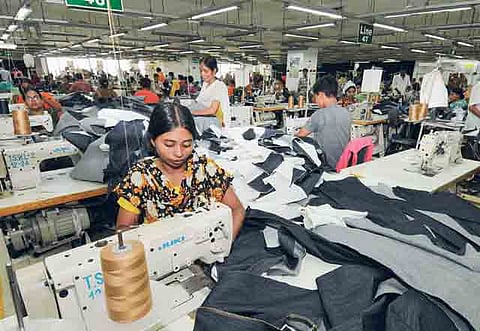Bangladesh halts unproductive spending to control inflation
Less credit to buy land, houses, apartments and consumer products

Dhaka: Bangladesh on Monday announced a new monetary policy aimed at putting the brakes on "unnecessary spending" to check inflationary pressures.
"Bangladesh Bank will certainly support more lending to agriculture, SMEs, renewable energy and other productive sectors, but it will discourage credit growth in the non-productive sectors," central bank governor Atiur Rahman told newsmen as he announced the new policy.
He said discouraging spending for non-productive purposes would be a major tool in attaining non-inflationary growth.
Under the half-yearly policy guideline for the banking sector, people will get less credit to buy land, houses, apartments and other consumer products while funds flowing to investments and productive sectors will increase.
The central bank chief said that like the previous policy, the new one will continue pursuing the dual objectives of containing inflation and accelerating investment for faster economic growth and the reduction of poverty.
Power price increase
The policy statement advocated a power price increase to reduce consumption for non-productive purposes such as lighting shopping centres and bridal parties.
It also suggested the central bank constantly monitor the economy to adjust the rates for repo, reverse repo, interest rates, cash reserve and statutory liquidity requirement to control inflation. The new policy was drawn up as inflation hit 6.51 per cent in April, slightly higher than the budgetary target of 6.50 for the current 2010-11 fiscal year.
Rahman feared inflation would rise during the next several months before it starts declining in line with the global trend.
The governor, however, made growth achievement conditional against the backdrop of ongoing power shortages and long-standing inadequacies in infrastructure.
He said the country would achieve 6.09 per cent growth this year if the planned development in power and infrastructure is implemented.
The monetary policy also put emphasis on the agricultural sector, which achieved 4.39 per cent growth last year. Industrial sector growth reached 6.42 per cent.



